A limited edition book from 1986, printed in 350 copies.
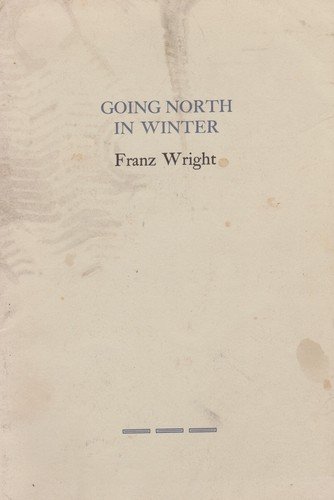
A limited edition book from 1986, printed in 350 copies.

Franz Wright was recognized as one of the leading poets of his generation even before he won the 2004 Pulitzer Prize. His voice and sensibility are distinctive, and the places he goes are ones where not many writers are able or willing to venture. The dark world of his poems, which face many of the hardest truths we must learn to live with, is lit by humor, tenderness, compassion, and honesty. For this edition, the poet has selected from the best of his previous collections, in some cases making substantial revisions, and has added his newest poems. The resulting collection is exciting in its breadth, consistency, depth, and distinction.
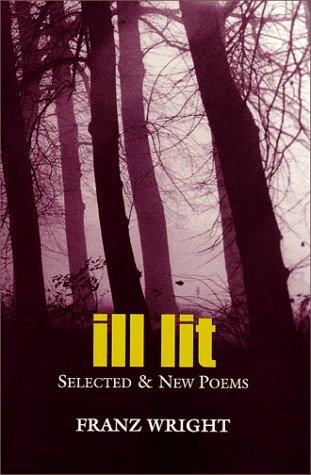
A genre-bending collection of prose poems from Pulitzer Prize–winner Franz Wright brings us surreal tales of childhood, adolescence, and adult awareness, moving from the gorgeous to the shocking to a sense of peace.
Wright’s most intimate thoughts and images appear before us in dramatic and spectral short narratives: mesmerizing poems whose colloquial sound and rhythms announce a new path for this luminous and masterful poet. In these journeys, we hear the constant murmured “yes” of creation—“it will be packing its small suitcase soon; it will leave the keys dangling from the lock and set out at last,” Wright tells us. He introduces us to the powerful presences in his world (the haiku master Basho, Nietzsche, St. Teresa of Avila, and especially his father, James Wright) as he explores the continually unfolding loss of childhood and the mixed blessings that follow it. Taken together, the pieces deliver the diary of a poet—“a fairly good egg in hot water,” as he describes himself—who seeks to narrate his way through the dark wood of his title, following the crumbs of language. “Take everything,” Wright suggests, “you can have it all back, but leave for a little the words, of all you gave the most mysteriously lasting.” With a strong presence of the dramatic in every line, Kindertotenwald pulls us deep into this journey, where we too are lost and then found again with him.
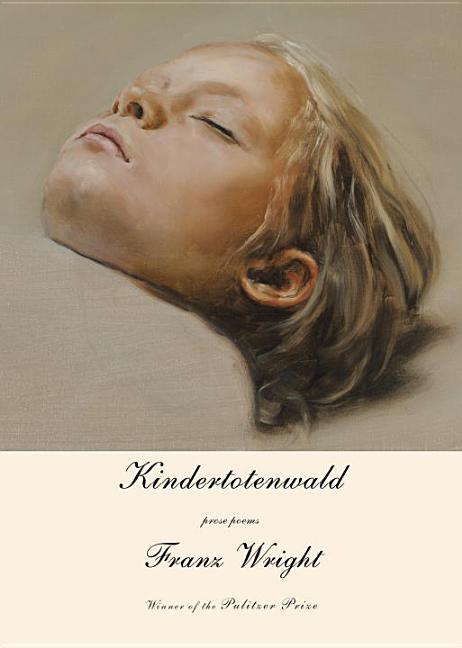
Poets speak metaphorically of poets of previous generations as their spiritual and artistic parents or grandparents. For Franz Wright, this is literally true: his father, James Wright, was one of the most influential American poets of the latter half of the twentieth century.
In this book Franz Wright is more intimate than ever before. His collection is a description of the struggle with the demons associated with following in the lineage of a great poet. We can find more of Wright himself in this collection, more of his identity, a grown up man who finally conquers the stigma of living in the shadow of his father. The memories of James Wright are clear and vivid but not a torment. In poems like "Recurring Dream," "Admonitions To Self," "The Future," "Untitled Poem in Three Parts," Franz Wright steps into a new phase of his own writing, he is more accessible to the reader and lets us pick and choose among his hopes and reflections. He alternates between memories of his family and present experiences in a rental apartment. He reveals the splendor and grandiosity of a friendship in the short poem "The Future" where we find a generous man taking care of a fallen friend.

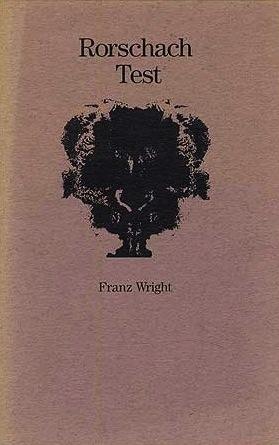
Wright's first collection.
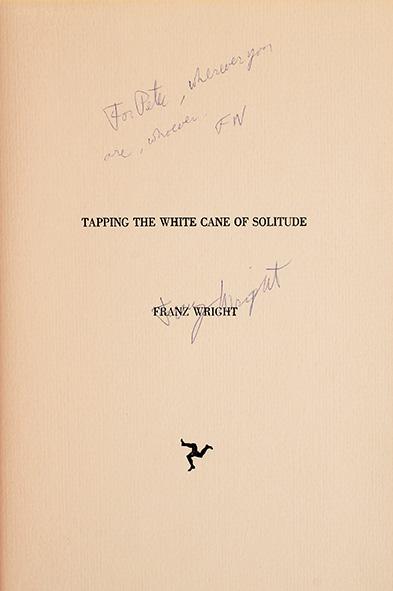
In this stunning collection, Franz Wright chronicles the journey back from a place of isolation and wordlessness. After a period when it seemed certain he would never write poetry again, he speaks with bracing clarity about the twilit world that lies between madness and sanity, addiction and recovery. Wright negotiates the precarious transition from illness to health in a state of skeptical rapture, discovering along the way the exhilaration of love—both divine and human—and finding that even the most battered consciousness can be good company. Whether he is writing about his regret for the abortion of a child, describing the mechanics of slander ("I can just hear them on the telephone and keening all their kissy little knives"), or composing an ironic ode to himself ("To a Blossoming Nut Case"), Wright's poems are exquisitely precise. Charles Simic has characterized him as a poetic miniaturist, whose "secret ambition is to write an epic on the inside of a matchbook cover." Time and again, Wright turns on a dime in a few brief lines, exposing the dark comedy and poignancy of his heightened perception.
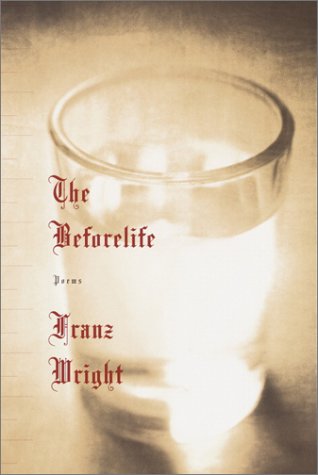
Limited edition of 250 numbered copies.
A collection of 21 poems that rip through the world-weary, grieving daily life of a poet and a man. Reflecting Homer's Odyssey, Franz Wright reports with the language of poetry the story of his life, the relationship to his father, to his wife and the world inside and outside of him. With delicacy he interns himself in those worlds, sometimes overwhelmed by nostalgia and sometimes illuminated with an underglow of joy, as in "Elizabeth's Eyes," or quiet happiness, as in "The Catfish." As a wise Telemachus he walks, reflects and expresses a sovereign balance of mind in "unseen supervision," "between time of ingestion and time of departure: undisturbed, unafraid, as all things are passing—the unknown bird spoke: who will remember? And why should I care? I had my time. I got to be here."
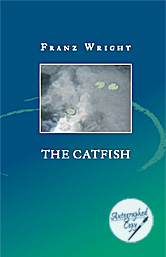
Marick Press is happy to be publisher of Franz Wright's very first book of prose, some of it narrative, some of it dramatic, some of it highly lyrical, and much of it verging on the unclassifiable. This chapbook of seven of his prose pieces presages the publication by Knopf of Kindertotenwald, his collection of sixty-five prose pieces, in October of 2011. Those familiar with Wright's work will find many of the preoccupations and obsessions of his lyric poems present in his prose, but presented in a looser, more improvisatory and experimental form.
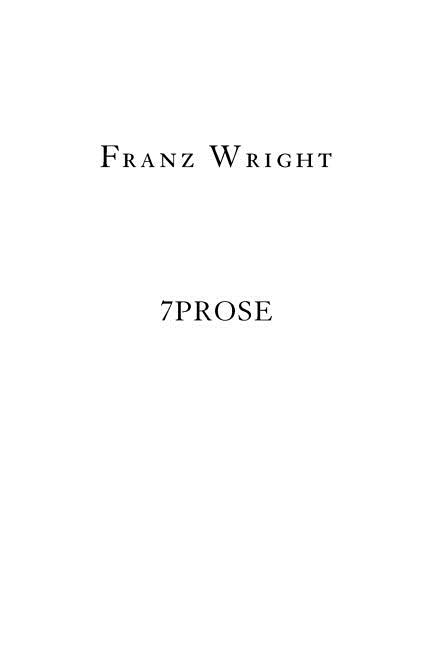
A collection published in 1980 by the Cleveland State University Poetry Center.
